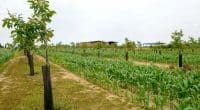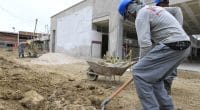Environment education lessons will be given to primary and secondary school students in the Democratic Republic of Congo (DRC) from the start of the 2020 school year. The decision taken on July 13, 2020 by the ministers in charge of the environment and education aims to instil environmental protection values in children from an early age.
Environmental education will be included in school programmes from September 2020 in the Democratic Republic of Congo (DRC). This is the substance of the tête-à-tête held on July 13, 2020 between the DRC minister of Environment and Sustainable Development, Claude Nyamugabo, and his colleague from Primary, Secondary and Technical Education Willy Bakonga. The measure aims to involve children in the fight to protect the environment by transmitting messages of environmental sanitation, protection and respect for natural heritage.
It is important that children grow up with a certain culture to protect the environment, soil, water, air, forests, etc. “It is important for children to grow up in a healthy environment for their physical and psychological development,” said Willy Bakonga, Minister of Primary, Secondary and Technical Education. For Claude Nyamugabo, Minister of the Environment and Sustainable Development, the integration of environmental education in school curricula will show children the complexity of environmental issues and their role in this common struggle.
Environmental education
Impelled in 1972 by UNESCO, environmental education, often associated with notions of eco-citizenship, is a pedagogical approach that is rooted in old movements such as new education, human ecology, popular education that aims to change humankind’s practices in the use and management of the earth’s resources.
Once reserved for national conferences, protocols and debates, environmental education in the DRC is more than ever necessary to preserve nature. Its extension to the school environment will have a long-term positive impact on the fight against deforestation, urban insalubrity and various forms of pollution. According to a report published in 2017 on this Central African country by the World Health Organization (WHO), every year, environmental risks (indoor and outdoor air pollution, passive smoking, unsafe water, lack of sanitation and poor hygiene) cause the death of 1.7 million children under the age of 5.
Boris Ngounou






